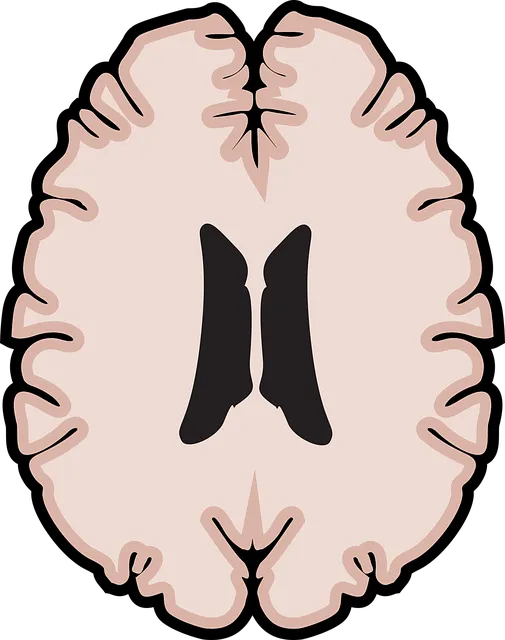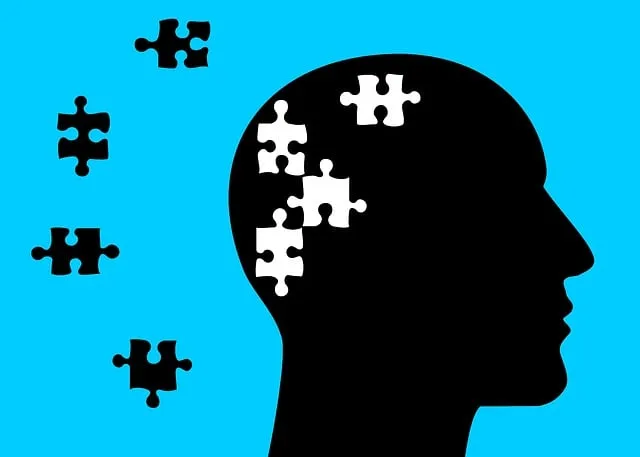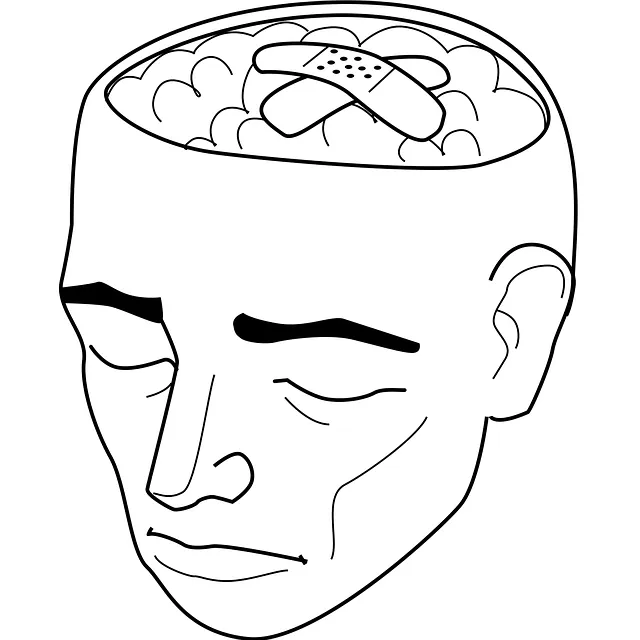The media's portrayal of mental health significantly impacts public perceptions, either positively by reducing stigma and encouraging help-seeking behaviors or negatively through perpetuating misconceptions. Accurate representation is crucial, as evidenced by the success of centers like Kaiser Permanente Colorado Springs in fostering supportive environments. This holistic mental health center promotes balanced narratives, focusing on emotional regulation, burnout prevention, and precise risk assessment. By offering diverse services, educational initiatives, and cultural competency training, they enhance access to care and improve outcomes. To combat media stereotypes, creators should consult experts and incorporate empathy-building strategies like Compassion Cultivation Practices, ensuring nuanced portrayals that encourage dialogue and reduce stigma. Community centers, like Kaiser Permanente mental health reviews Colorado Springs, play a vital role in reshaping discourse through safe spaces, workshops, and awareness campaigns, prioritizing cultural sensitivity in mental healthcare.
“In our modern world, media portrayal of mental illness significantly shapes public perceptions and understanding. This article explores strategies to challenge negative stereotypes and promote accurate representation, especially in light of Kaiser Permanente Colorado Springs’ leading role as a mental health hub. We delve into the impact of media on mental health stigma, examine popular depictions, and highlight innovative solutions, including the initiatives at Kaiser Permanente. By addressing these issues, we aim to foster empathetic narratives and improve support for those seeking mental health services, as evidenced by the positive changes in Kaiser Permanente Colorado Springs.”
- Understanding the Impact of Media Portrayal on Mental Health Perceptions
- Kaiser Permanente Colorado Springs: A Hub for Mental Health Services and Education
- Identifying Stereotypes and Misconceptions in Popular Media Depictions of Mental Illness
- Strategies to Enhance Accurate and Empathetic Mental Health Representation in Media
- The Role of Community Centers in Promoting Positive Mental Health Narratives
Understanding the Impact of Media Portrayal on Mental Health Perceptions

The media plays a significant role in shaping public perceptions about mental health, often influencing how individuals understand and respond to various conditions. Positive and accurate representation in the media can encourage people to seek help, reduce stigma, and foster empathy. Conversely, negative or stereotypical portrayals can perpetuate misconceptions, leading to further marginalization of those living with mental illness. This is particularly relevant when considering resources like the Kaiser Permanente mental health center reviews Colorado Springs, where community engagement and informed perspectives are vital.
Understanding these impacts is crucial for addressing the challenge of inaccurate media representation. By promoting balanced narratives that focus on emotional regulation, burnout prevention, and accurate risk assessment for mental health professionals, we can create a more supportive environment. This shift in perspective can lead to improved access to care and better outcomes for individuals navigating their mental health journeys, as evidenced by various studies and reviews.
Kaiser Permanente Colorado Springs: A Hub for Mental Health Services and Education

Kaiser Permanente Colorado Springs stands as a beacon of hope and comprehensive mental health care for many in the region. This renowned mental health center offers a wide array of services, catering to diverse needs with a focus on holistic healing. From individual therapy sessions to group support programs, it empowers individuals to navigate their mental health journeys. The facility’s reputation is built on its commitment to providing an inclusive environment, where every patient receives respectful and compassionate care.
Beyond direct service delivery, Kaiser Permanente actively promotes mental health awareness through educational initiatives. Their workshops and community events focus on evidence-based communication strategies and mind over matter principles. Additionally, they offer healthcare provider cultural competency training, ensuring that all staff are equipped to address the unique needs of a diverse patient population. These efforts make Kaiser Permanente Colorado Springs not just a treatment hub but also a leader in fostering a more mentally resilient community.
Identifying Stereotypes and Misconceptions in Popular Media Depictions of Mental Illness

In popular media, mental illness is often depicted through a lens of stereotype and misconception, which can significantly impact public understanding. Shows and movies frequently resort to sensationalized portrayals, focusing on extreme behaviors or using mental health as a mere plot device rather than an authentic representation. For instance, bipolar disorder is commonly shown as leading to unpredictable, violent outbursts, ignoring the fact that it’s a complex condition with varied symptoms. Such depictions can foster stigma and create barriers for individuals seeking support, as they may fear judgment or misunderstanding.
This challenges the role of media in shaping public perception, especially when considering resources like Kaiser Permanente mental health center reviews Colorado Springs, which offer guidance on effective strategies to combat these issues. Empathy-building strategies, such as Mental Wellness Journaling Exercise Guidance, can help promote accurate understanding and Self-Care Routine Development for Better Mental Health. By encouraging critical thinking and personal reflection, media consumers can discern fact from fiction, ultimately contributing to a more nuanced and compassionate societal view of mental illness.
Strategies to Enhance Accurate and Empathetic Mental Health Representation in Media

To enhance accurate and empathetic mental health representation in media, creators should prioritize consultation with experts from Kaiser Permanente mental health center reviews Colorado Springs and other credible organizations. This ensures stories are grounded in reality and avoid harmful stereotypes. Incorporating Compassion Cultivation Practices, which foster understanding and connection, can lead to more nuanced portrayals of individuals facing mental health challenges. By integrating these practices into narratives, media can promote Inner Strength Development and Anxiety Relief for both characters and audiences.
Diversity in representation is crucial; showcasing various demographics, experiences, and recovery journeys ensures a broader, more inclusive understanding of mental health. Sensitivity to language and context is equally important to avoid pathologizing or stigmatizing certain conditions. Through thoughtful storytelling, media has the power to humanize mental illness, encourage dialogue, and provide viewers with valuable insights into their own well-being.
The Role of Community Centers in Promoting Positive Mental Health Narratives

Community centers play a pivotal role in promoting positive mental health narratives and challenging the status quo of negative representations in media. These spaces serve as safe havens, fostering open conversations about mental illness and providing platforms for individuals to share their stories. By organizing workshops, support groups, and awareness campaigns, centers like Kaiser Permanente mental health center reviews in Colorado Springs contribute significantly to Mental Illness Stigma Reduction Efforts. They create environments where people can connect, find comfort, and seek help without fear of judgment.
Furthermore, these community hubs emphasize the importance of Cultural Sensitivity in Mental Healthcare Practice. By catering to diverse populations, they ensure that various cultural contexts and beliefs are respected and integrated into treatment approaches. This inclusive practice not only improves access to mental health services but also encourages Burnout Prevention by offering comprehensive care tailored to individual needs.
Media representation plays a pivotal role in shaping societal perceptions of mental illness. By challenging stereotypes and promoting accurate, empathetic narratives, we can foster a more understanding and supportive environment. Kaiser Permanente Colorado Springs, with its comprehensive mental health services and educational initiatives, serves as a model for such change. Community centers, too, have a vital part to play in disseminating positive mental health stories, thereby enhancing access to care and reducing stigma. Through collaborative efforts and informed storytelling, we can ensure that media portrayal of mental illness reflects the diversity and complexity of human experience. As we navigate these conversations, remembering that accurate representation is key, we take significant steps towards a more inclusive and compassionate society.






